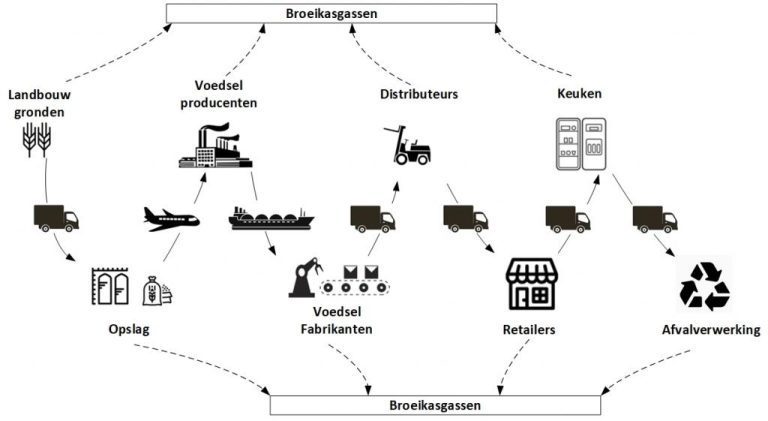Is eating more sustainably hard? Five students are changing their lifestyles for five weeks and are vlogging about it. Have they now stopped eating meat?
Less meat, local vegetables and lots of potatoes. Last week was no easy task for our Super Sustainable Students. (Photo: Pasha1000 / Pixabay)
Scroll down to see the vlog.
Less meat, local vegetables and lots and lots of potatoes. Last week – the first week that Kim, Roos, Hanne, Bart and Julia started living more sustainably – was not easy for all of them. “I still wanted a varied diet,” says Hanne, “so I had some pasta.” Kim admits in one of her vlogs that “I was feeling really stressed so I bought some M&Ms. That’s a no no of course.”
Hard. But can you really save the world with one bag of M&Ms more or less?
The students put this to Guus ter Haar who works at New Foresight, a strategic consultancy agency that is working to make tropical agriculture more sustainable. Ter Haar is also involved in the protein transition in the Netherlands. This is a movement that encourages people to eat more plant-based proteins and less meat. “If you think sustainability is important, you need to set the example to the rest of the world,” he believes. “You should not underestimate the scale of impact that you can have if you inspire people to think about their choices.”
These choices are difficult. How can our students tell whether a tomato comes from the Netherlands or from Morocco? “It’s quite tricky”, says Bart. “Many factors play a role and the packaging does not always show how something was transported or grown.” “We use the groente- en fruitkalender van Milieucentraal (Dutch only)”, explains Hanne. . “We also get a lot of information from Life Cycle Assessments, or LCAs. These analyse the life cycles of products and cover everything, from production and storage to disposal. You need to read the analyses critically, but they are a good guide.”

LCA’s take everything into account when analysing products.
Using the LCAs and the fruit and vegetable calendar, the students put together five lists, one for each of the five basic food groups (issued by The Netherlands Nutrition Centre, this is called the Schijf van Vijf in Dutch). They used these lists when doing their week’s shopping. Unsurprisingly, the best thing to drop was meat. Meat production uses an enormous amount of water. According to Guus ter Haar, “if you eat meat seven days a week and cut your shower time by one minute, you will make little difference. By comparison, it would be better to eat meat twice a week and let the shower run for the whole week. You’d still use less water.”
For most of our five students, removing meat from their diet is not a problem. They have been vegetarian for a while or are surrounded by people who believe that eating less meat is the way to go. Except for Roos then. Her boyfriend enjoys cooking, and enjoys cooking with meat. “Now that I am doing this project, I’m working on changing this,” she says. “Throwing food away is not good either so I usually just eat whatever he cooks.” Ter Haar has a solution for this. “Try to eat less meat, but if you do eat meat, then choose your meat carefully. Check how it is produced and if it is organic.”
If you want to eat more sustainably yourself, Bart has a tip. Too good to go is an app through which companies sell their ‘leftovers’ or foods that are approaching the sell-by date. “I got a pile of vegetables from the organic supermarket for only EUR 5.”
The students will continue eating more sustainably next week and will examine their hygiene products.
- Do you have tips or questions for Kim, Roos, Hanne, Bart and Julia? Mail the editors or leave a comment on Facebook, Instagram, LinkedIn or Twitter.
Roos van Tongeren / Redacteur


![[Vlog] Less meat, local veggies and lots of potatoes](https://delta.tudelft.nl/wp-content/uploads/2023/12/potatoes-3675267_1920.jpg)
Comments are closed.